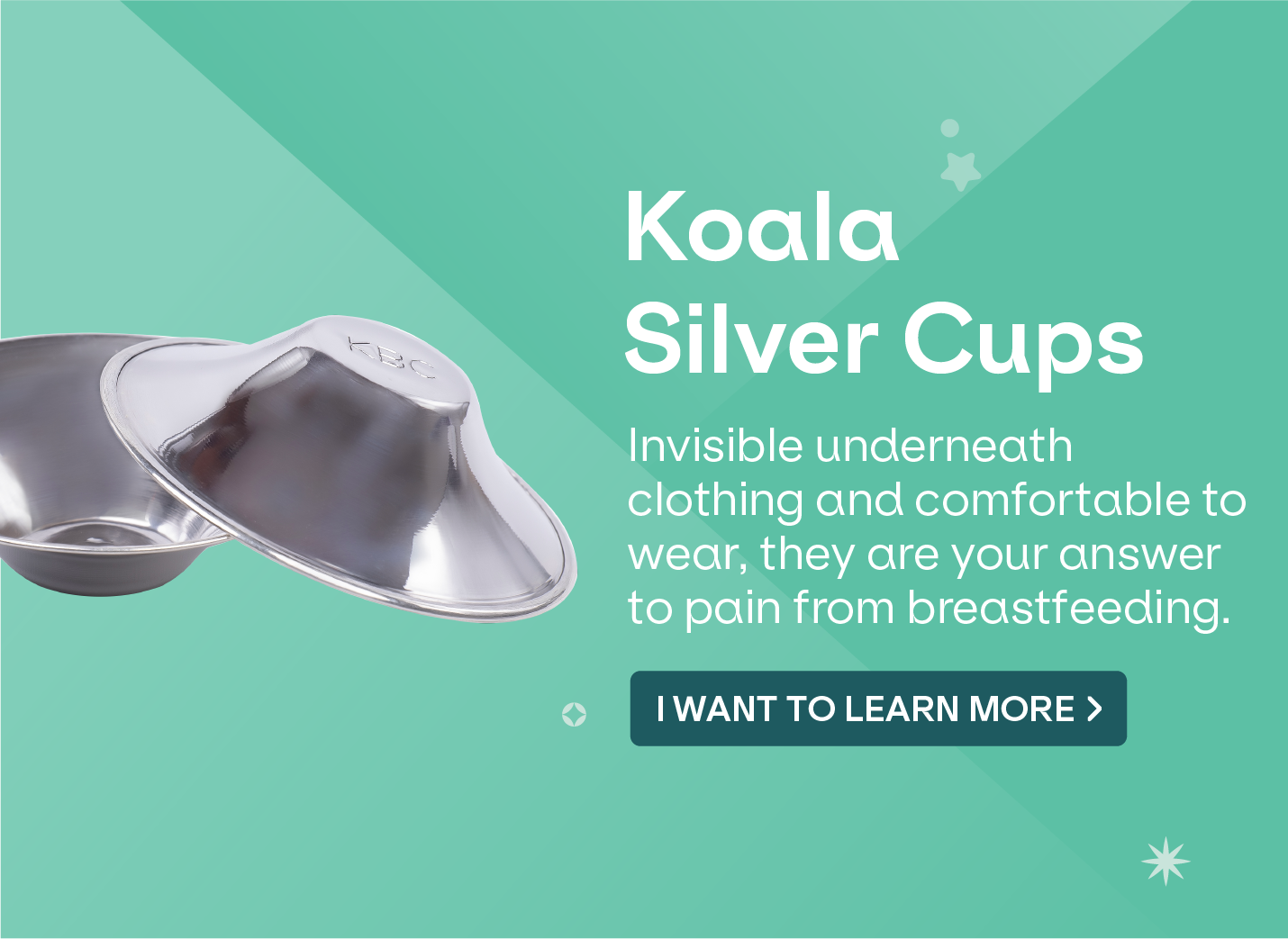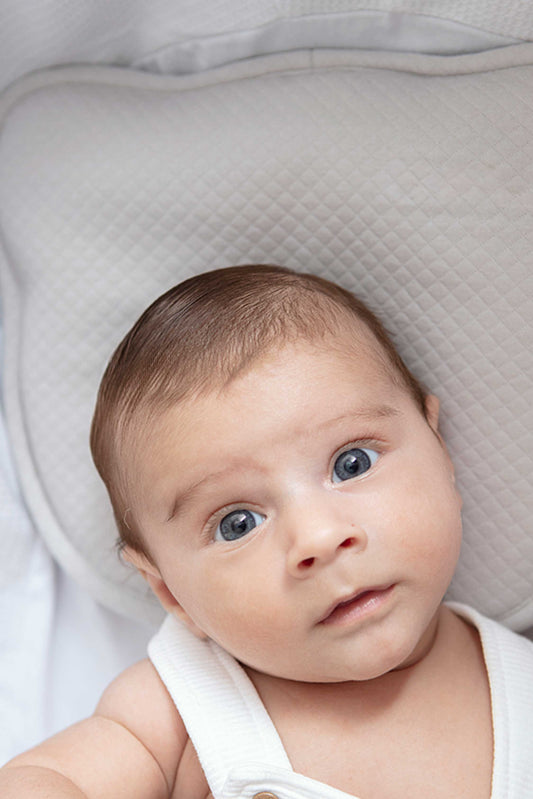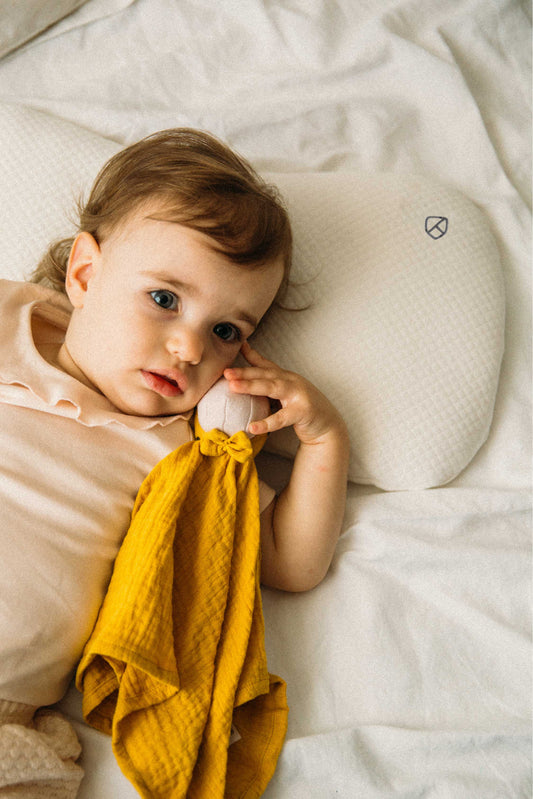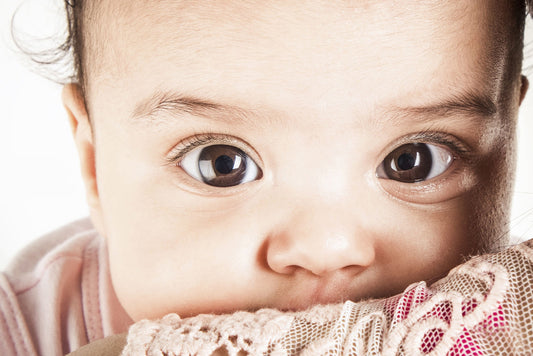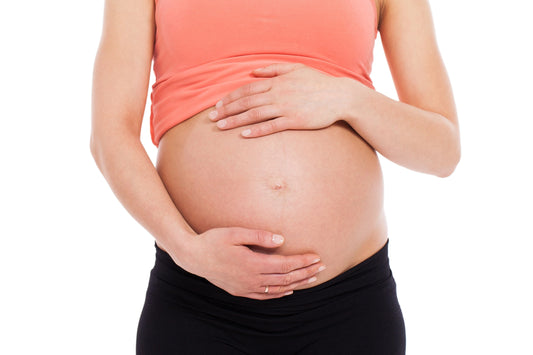Sore cracked nipples, also known in medical terms as nipple fissures) should always be acted upon swiftly. Preventing and treating irritated nipples naturally is simple if you know how. We explain more on nipple fissure during breastfeeding treatment in the following paragraphs!
Why do 1 in 4 women suffer from nipple soreness when breastfeeding (nipple fissures)?
Almost all women who breastfeed experience painful and extremely sensitive nipples, while about 25% develop nipple fissures.
What are they and what do they depend on?
Nipple fissures are irritated, cracked, bleeding or sore nipples, which are usually caused by overly sensitive nipples combined with incorrect positioning at the breast while nursing.
When your baby is effectively attached, your nipple rests comfortably against the soft palate at the back of their mouth. If, on the other hand, your baby is poorly attached to the breast, a woman’s nipple will be positioned towards the front of their mouth and may rub against the hard palate, causing pain.
Nipple fissures can cause breastfeeding to be both a painful and uncomfortable experience for a mum, and may lead to her giving up breastfeeding.
In such cases, most mums only intend to discontinue breastfeeding for a short while, until their nipples heal. However, when a woman’s breast isn’t stimulated, then milk production tends to stop altogether.
Hence why you should not stop breastfeeding. Here’s some advice on what, on the other hand, can help you ease sore nipples when breastfeeding.
Nipple fissure treatment: natural remedies
We are not here to tell you why exclusive breastfeeding up to when your baby reaches 6 months old is important, we are sure you are already aware of Ministry of Health guidelines.
Breastfeeding is a unique experience for each and every mother. Some women breastfeed until 6 months, some breastfeed until 10 months, some breastfeed until their toddler turns 2 years old. Others aren’t able to breastfeed at all. Whatever the experience, it’s hardly ever plain sailing.
Breastfeeding your baby does mean you’ll encounter some form of discomfort, such as sore breasts. If you’re not prepared, then you run the risk of having to discontinue breastfeeding. That’s exactly why we’re here. We want to ensure you’re not just ready - you’re more than ready! Here's all you need to know on how to prevent or how to heal nipple fissure.
Make sure your baby latches on to your breast properly
The main cause behind the occurrence of nipple fissures is usually because your newborn baby's not positioned and attached properly at the breast.
Your baby should be positioned in such a way that they don’t have to stretch their neck, and should be latched on to the whole areola area not just on to your nipple.
If you have any questions about how to position your newborn correctly, or if you are struggling or experiencing any discomfort when breastfeeding, contact your midwife, health visitor or breastfeeding supporter as soon as you can. They will be able to help and advise you in the best possible way.
Seeking advice from an NHS professional is vital in helping you resolve any problems at an earlier stage, which will ensure your experience with breastfeeding is both positive and pleasant.
Short but frequent feeds are best
When you’re suffering from sore cracked nipples, the most common mistake mums make is to discontinue breastfeeding to allow their nipple time to heal. This, however, can often lead to a loss of milk production.
It's much better to persevere, despite any discomfort you may feel, and to keep feeds short yet frequent, so your infant sucks less forcefully.
What happens if my nipples bleed? There is no need to worry if your baby swallows a little bit of blood, given it’s mixed with mum's milk then it won’t cause any problems.
Organic Almond Oil
One of the most effective natural remedies for breast fissure treatment is Organic Sweet Almond Oil, which offers soothing, emollient and nourishing properties.
Even better when combined with Vitamin E, such as Koala Skincare's Organic Vitamin E Oil: a true miracle-worker for all kinds of skin irritations!
Dab your nipple with your own milk
Your milk is much more effective than any cream or disinfectant, which may also alter the taste.
To speed up the healing process of chafed nipples, dab your nipple with a few drops of breastmilk after feeding and let it air dry.
Breast milk contains antibodies and natural substances that promote healing recovery of the epidermis whilst also acting as an antibacterial agent.
Silver nipple shields
Koala's silver nipple cups are an absolute essential for every first-time mum, offering help not only in treating, but also in preventing sore cracked nipples.
With their extraordinary disinfectant, antibacterial and disinfectant properties, they provide great relief for nipple irritation and offer amazing healing action.
We recommend you start using them as a preventive measure a few days before your due date to help avoid the onset of nipple fissures.
Why Koala Silver Cups are all you need
Koala Silver Nipple Cups are an effective natural remedy against sore breasts and beyond. They protect your nipples, which are particularly tender and sensitive whilst breastfeeding, from any discomfort caused by friction or rubbing against clothing.
In addition to their healing action, they are also an excellent form of prevention thanks to silver’s curative, antibacterial and disinfectant properties.
How to use them?
Dab your nipples with a few drops of your breast milk after feeding and let them air dry, then place the cups on your nipples in-between your skin and your bra.
They are odourless and tasteless; you only need to remove them just before each feed as they do not alter the taste of your milk.
Koala Silver Cups are anatomically shaped and extremely comfortable, you won't even remember you have them on. And no one else will notice either, as they are invisible underneath clothing.
Breastfeeding is a very special moment of bonding between a mum and her baby, yet there will be challenges to overcome along the way. If you want to breastfeed your baby, don't give in too easily when you encounter breast feeding problems, such as cracked nipples. Hang in there and you’ll soon find the solution that’s right for you!



